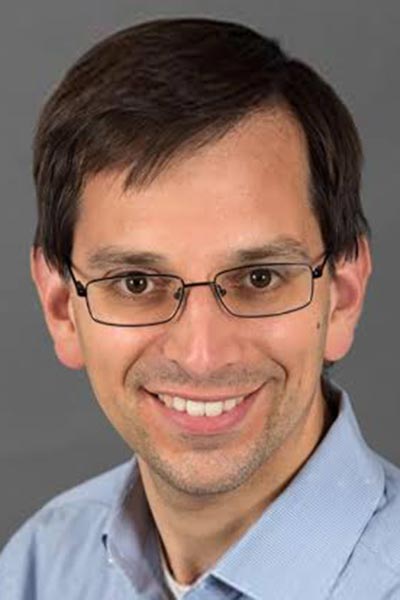John Prensner, MD, PhD
Spotlight on the AACR NextGen Stars Class of 2025
Since 2014, the American Association for Cancer Research (AACR) has provided the opportunity for graduate students, postdocs, and assistant professors to give high-profile presentations at the AACR Annual Meeting as part of its NextGen Stars Program. This year, 11 early-career researchers were selected based on their outstanding applications.
Learn more about one of the newest NextGen Stars below, and check out the Q&As with other members of the NextGen Stars Class of 2025.
John Prensner, MD, PhD
AACR NextGen Stars Class of 2025
Assistant Professor
University of Michigan, Ann Arbor, Michigan
Abstract Presentation:
Mapping the functional microproteome in cancer
Session Details:
SY04 – Application of Systems Biology, Functional Clinical Proteomics and Multiomic Approaches for Precision Oncology at the Bedside
Monday, April 28, 12:30-2 p.m. CT
Room S406 (Vista Ballroom), McCormick Place South (Level 4)
What is the subject of your research?
We study the dark proteome in cancer. This is the set of microproteins and peptides produced by portions of the cancer genome that are not the standard protein coding genes. We conduct functional genomic analyses, RNA translation profiling, and proteomics investigations of the dark proteome to identify novel therapeutic targets in cancer.
What sparked your interest in this area of research, and why is it important?
The dark proteome is poised to be the next great frontier in cancer research. There are literally thousands of unstudied microproteins made by cancer cells. We are studying how some of these are central to the functions of cancer cells as well as how they can become the next generation of therapeutic targets. Thus, this area is important because it has the promise to transform our knowledge of cancer biology and therapeutics. My interest was sparked by early evidence that there was a massive dark proteome in yeast and other model organisms, and so I got to thinking about how that work might inform cancer. It’s a super cool area to be working in.
What (or who) inspired you to apply for the NextGen Stars program?
My friend and colleague at the University of Michigan was previously a recipient of a NextGen Stars award and motivated me to apply for this program.
What do you hope to take away from your experience as a NextGen Star and your time at the AACR Annual Meeting 2025?
I would love to use my time at the AACR Annual Meeting to meet the other NextGen Stars and hear about their work! So many smart young scientists—seems like a great way to learn and form new collaborations! For my part, I’m hoping to be able to educate people about the existence of the dark proteome. It’s a very early research field, and I don’t think many people are familiar with it. I’m excited to be able to serve as an ambassador of this field for the cancer research community.
More from the AACR Annual Meeting 2025
View a photo gallery of scenes from Chicago, continue the conversation on social media using the hashtag #AACR25, and read more coverage in AACR Annual Meeting News.


